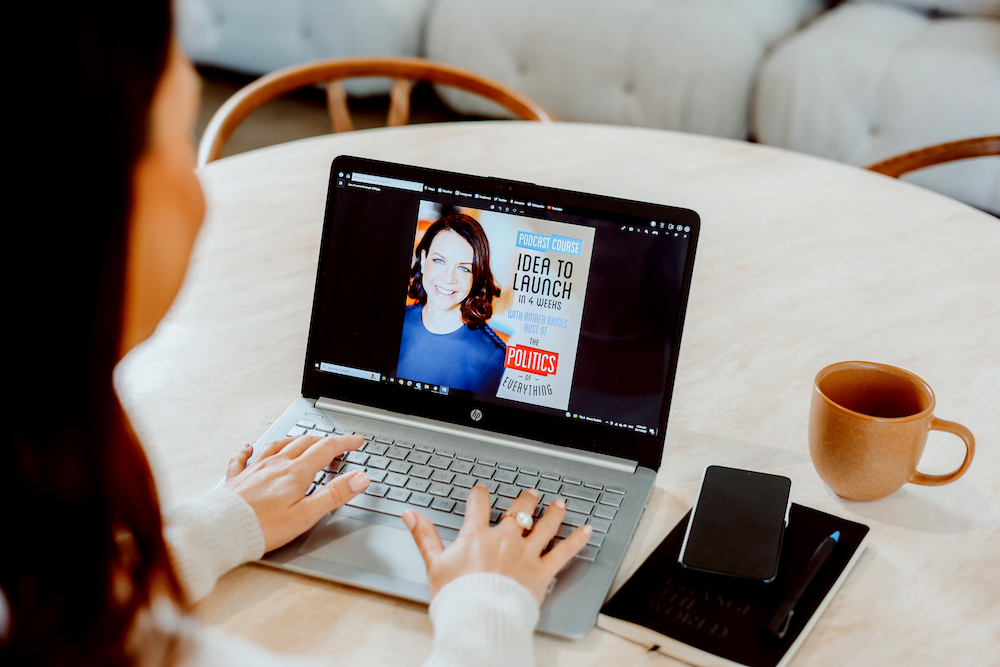Amber's Blog
Expert Ideas, Tools & Musings

Podcast hosting solo takes more than a great introduction
Amber Daines | 4 September, 2023Hosting a podcast on your own is great fun once you know how to manage it!
Sitting solo speaking into a microphone, and trying to perform to a listener you can’t see is hard work at first.
Here are my ways to master this solo podcasting gig.
Be conversational
Conversations flow when we are physically in a room with another human, and even after the pandemic got us used to Zoom meetings, there is nothing like speaking to someone in person. When presenting a show solo, you must be confident and own the sound waves from start to end. One trick is to imagine someone in your mind (the ideal listener), which is how many professional podcasters and radio presenters make their shows flow. Once you’ve had a lot of practice, this comes easily. But when you’re starting, you must actively use your powers of imagination and be prepared to try and try again.
Practice your delivery well ahead of the recording day
If you’re having difficulty conjuring someone up in your mind, you can always help your brain by recording yourself on your phone or laptop. You’ll be surprised at what a difference it’ll make to the energy in your voice just seeing another person (even if that person is your face!).
Be warm and sincere
When you’re talking to your podcast audience, each person listening must feel like you’re speaking directly to them. When someone chooses to listen to your content, they’re rarely listening with someone else, so if you talk to them like they’re part of a group, it’ll disconnect you from them. Using the word “you” when referring to your audience is the easiest way to do this. And think about talking to a single person rather than a faceless crowd. The key to podcasting connection is you make each listener feel like you are speaking to them. That is where we find audience magic.
Get your vocal energy right
Creating’ light and shade’ or variation in your voice keeps people engaged, but what feels energetic when you’re speaking can often feel much lower energy to someone listening. This is because some of that energy is downplayed on audio delivery.
You don’t want to sound overly enthusiastic or slow and methodical. The sweet spot is that middle range plus some. Trying to harness enough energy required to sound like you’re having a relaxed, natural conversation in a podcast requires much more energy than if you were having a relaxed, natural conversation in real life over a cup of tea.
The goal is to sound confident enough to meet your listeners where they are rather than them having to come to you, and sometimes that sweet spot takes time to find. It takes practice and patience to better host your show, but the podcast world will thank you.
Have you dived into your podcast? Want some help for us? Check out my free podcast guide downloadable here or join our on-demand course (that has, since January 2023, helped over 1,000 new podcasters shine).
